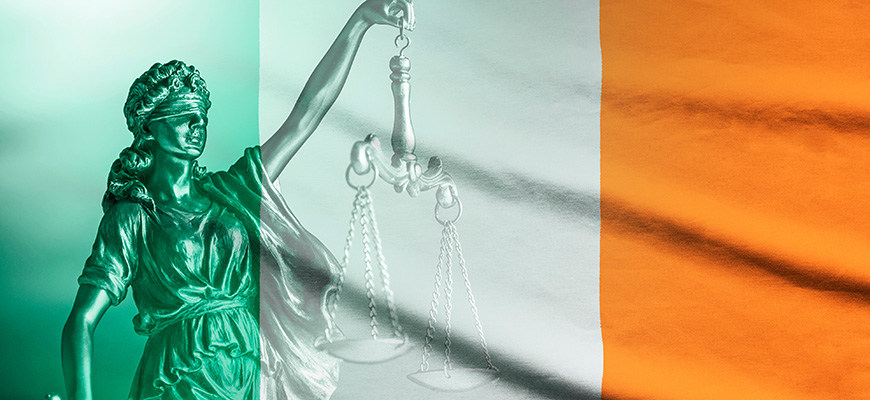
In the second of a series of blogs on veganism in Irish law, Dr Maureen O'Sullivan examines the issue of subjectivity and objectivity in the future development of a legal definition of veganism.
The notable Irish Court of Appeal case, In Cranston, Webb v Oldfield appears to have been the first de facto case recognising veganism in Britain or Ireland. The language, of course, was that of vegetarianism as in the late nineteenth century the term “veganism” was yet to be coined. Cranston decided by a court of eminent judges was to have an effect on subsequent case law. In another case from the early twentieth century, O’Hanlon v Logue,[1] the facts concerned whether charitable bequests to religious institutions were to be decided subjectively or objectively. At the time, the law favoured the former test so the societies would be evaluated upon their own, rather than outside, principles. If a legal definition of veganism is to be made, it will be essential that it emanates from vegans themselves and not an outside agency which would have competing claims to consider. Sectors of the food industry, for instance, may seek to allow a small percentage of non-vegan food within a legal parameter and this would be abhorrent and, indeed, aberrant for vegans themselves.
In O’Hanlon v Logue two of the judges compared the position of bequests promoting vegetarianism with those of a religious hue and opined that both should be treated the same. The most eminent judge Palles, LCB stated: “in the vegetarian and anti-vivisection cases in England it was laid down that the question should be decided subjectively and not objectively; it should be decided according to the view of the particular society.”[2]
The second judge, Fitzgibbon, L.J. who had recognised vegetarianism as a protected belief in Cranston cited his judgment in another case, Att.-Gen. v. Hall. Here he defined the task of a secular court when considering a religious matter as being to “act upon evidence of the belief of the members of the community concerned” in order to determine whether members of a particular church were benefited by the rite in question. He commented that “[i]t would be strange indeed if bequests for the promotion of total abstinence, or even vegetarianism,…or the prevention of cruelty to animals, could be held, as they have been, to be charitable objects” if a bequest by a member of a particular church for the celebration of a rite of that same church would be excluded.[3] Some vegans may baulk at the comparison to religious beliefs but the court is merely using certain tools at its disposal to give secular beliefs credence and, indeed, vice versa.
In Attorney-General v Becher[4] Lord O’Brien, C.J. quoted a passage from the then Lord Chancellor who reportedly said in O’Hanlon v Logue that the decision in Cranston, Webb v Oldfield which concerned a gift for the spread of vegetarian principles was accepted as valid.
Another Irish judge who eventually became Chief Justice, Keane J. upheld the approach of his pre-independence and pre-coinage-of-“veganism” colleagues. In Re the Worth Library[5] he observed that the intention of the testator is always paramount. Providing that the charitable object has legal recognition, the gift would be charitable. Even if many people do not share the testator’s view in the public utility of the gift – and here Keane J. gives an example of vegetarianism, a practice which is not followed by many other people – it does not matter. In the eyes of the law, it will constitute a valid charitable gift, providing that it is “not illegal, irrational or contra bonos mores.”[6] Such is the effect of deferring to the subjective opinion of the giver of the gift.
O’Halloran observes that the subjective approach is no longer followed by British courts.[7] However, it continues to be followed in Ireland[8] where the question will focus on the donor’s belief that the gift was of a charitable nature.[9] Were the objective approach adopted by the legislature when a legal definition is being drawn up, it could be very detrimental. Vegans must be enabled to define what veganism is rather than an obscure, abstract agent doing it for them.
Maureen O’Sullivan, PhD, Lecturer (Above the Bar), School of Law, National University of Ireland, Galway.
References
[1]O’Hanlon v Logue [1906] 40 ILTR 78.
[2]O’Hanlon v Logue [1906] 40 ILTR 78.
[3]O’Hanlon v Logue [1906] 40 ILTR 78.
[4][1910] 44 ILTR 67.
[5][1994] 1 I.L.R.M. l61.
[6][1994] 1 I.L.R.M. l61 at 193.
[7]The approach changed in Re Hummeltenberg [1923] 1 Ch. 237.
[8]O’Halloran, K., “Charity, the Law and Social Need”, Dublin University Law Journal 2001, 23(1), 97-119.
[9]O’Halloran, id., cites two cases in which this change is apparent. First of all, in Re Fouveaux [1895] 2 Ch. 501, Chitty J. held that the abolition of vivisection satisfied the criteria as a charitable purpose as the testator’s intention was to benefit the community. He did not consider that the court should determine whether the community would actually benefit. However, this approach was overruled in the House of Lords of National Anti–Vivisection Society v. IRC [1948] A.C. 31. No longer would the testator’s intention be decisive; instead, the public benefit test would be applied by the court.
